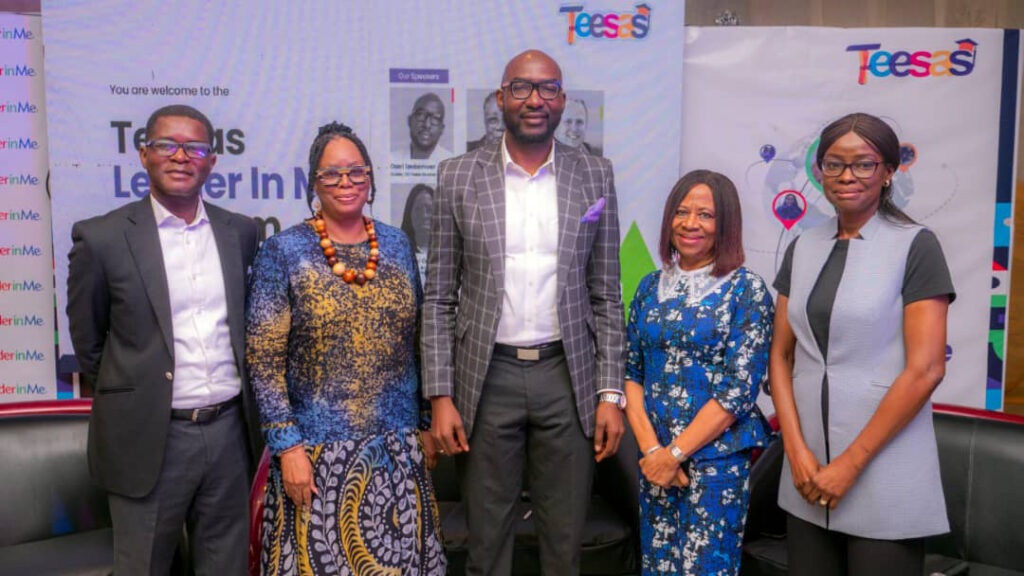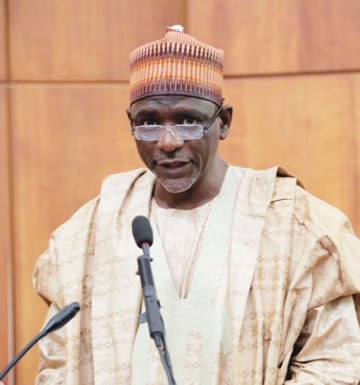 Following the failed efforts by previous administrations to end the lingering discrepancy between B.Sc./HND holders in government agencies and the private sector, agitations have been renewed for President Bola Tinubu to assent to the bill seeking to abolish the dichotomy, IYABO LAWAL reports.
Following the failed efforts by previous administrations to end the lingering discrepancy between B.Sc./HND holders in government agencies and the private sector, agitations have been renewed for President Bola Tinubu to assent to the bill seeking to abolish the dichotomy, IYABO LAWAL reports.
Despite the passage of the bill removing the disparity between Higher National Diploma (HND) holders and their university counterparts by the National Assembly, discrimination against polytechnic graduates in the workplace is yet to abate.
The National Assembly, had on June 8, 2021, passed a bill abolishing the existing dichotomy between HND and Bachelor of Science (B.Sc.) degree holders in the country.
It also aimed to promote Nigeria’s technological advancement by encouraging many qualified candidates to pursue polytechnic and technological studies.
However, former President Muhammadu Buhari failed to assent the bill till he left office last year.
The issue of dichotomy between university and HND holders in the country, especially when it comes to employment, has been in national discourse for a long time.
The trend places degree holders above their polytechnic counterparts in the work pool and subsequent promotion. On many occasions, HND holders cannot go beyond grade level 14, especially in the civil service, while degree holders could rise to grade level 17 before retiring from active service.
Many have argued that in terms of academic discipline, both degree holders spent the same number of years in school, and there should not be any reason for discrimination.
In developed nations where Nigeria copied its system of education, HND and degree holders are employed on the same grade level. Infact, these countries don’t care about the certificate one has; all they are after is what one can offer as a graduate.
Also, due to discrimination, HND graduates are‘forced’ to undergo a two-year conversion programme in universities. Even those who graduated with distinction or upper credit are not allowed to study medicine or law through direct entry in most universities. They are simply asked to write the Unified Tertiary Matriculation Examination (UTME).
The discrimination has affected enrollment into polytechnics, as prospective students opt for universities, heightening fears over the future of technical education.
For instance, former Executive Secretary of the National Board for Technical Education (NBTE), Dr Muhammad Yakubu, said for 2018/2019 session, only 342, 986 students were admitted into polytechnics and other technical colleges, as against 1.8 million students admitted into universities.
In the same vein, data from the Joint Admissions and Matriculation Board (JAMB), showed that in 2020, of the 2.1million candidates that registered for the Unified Tertiary Matriculation Examination (UTME), only 58,266, representing 2.29 per cent chose polytechnic.
In 2021, out of 1.8 million candidates, only one per cent applied to polytechnic. Of the 1,595,773 applicants for the 2023 UTME, 1,453,797, representing 91 per cent, are seeking admission into universities, while 141,976 candidates, representing only nine per cent of total candidates, are seeking admission into polytechnics, colleges of education and other enterprise institutions.
It was to put an end to this that the National Assembly passed a bill for an end to the dichotomy between the two certificates.
Titled: ‘A bill for an Act to abolish and prohibit dichotomy between first degree and higher national diploma in the same profession/field for the purpose of employment; and for related matters,’ the legislation sought to resolve the controversy and promote Nigeria’s technological advancement by encouraging many qualified students to pursue polytechnics and technology-based studies.
On June 2, 2021, the Senate passed the bill, stipulating punitive measures against disparities and discrimination against HND holders. This means that the two certificates are now equal.
Before then, in 2006, President Olusegun Obasanjo’s administration, in a move to end the discrimination, approved a new policy reversing the existing one, which restricts polytechnic graduates from rising above salary grade level 14 in the public service, unlike their university counterparts.
The new policy at the time was seen as the beginning of a new dawn and a ray of hope for HND holders in the country.
While attempting to enforce the policy, Obasanjo directed the then minister of education, Chinwe Obaji, his then Chief of Staff, Mohammed Abdullahi, and former head of service, Yayale Ahmed, to prepare a position paper reflecting the new position so that government could immediately commence its implementation.
In September 2007, under the late former President Umaru Yar’Adua, the Federal Executive Council (FEC) also directed that the dichotomy and ceiling on salary grade level attainable by HND holders be removed.
Even former President Buhari frowned at the disparity between degree and HND holders in the civil service.
Based on this, the then Head of Service of the Federation, Mrs Winifred Oyo-Ita, in a circular dated March 26, 2018, said HND holders would enjoy salary grade level 08 in the civil service at the entry point like their colleagues with university degrees. It also encouraged serving officers, who hold HND to fulfil all specified conditions in the scheme of service and extant rules for career progression beyond level 14.
Despite this, discrimination against HND holders in private and public agencies persists because there were no sanctions for non-compliance.
And for about two years after the bill was passed, former President Buhari withheld his signature till he left the office.
Stakeholders in the sub-sector are, again, pleading with Tinubu to save the situation by considering the bill.
Coordinator of the coalition of HND stakeholders, Sebastian Onyemaobi, appealed to the president to consider the bill, saying this would end the outdated class-concept and certificate-based approach practised in Nigeria, including introducing the globally accepted performance-based approach to workplace administration.
He noted that the passage of the bill rekindled the hopes and self-esteem of HND holders,who over the years, have been traumatised due to discrimination at their various workplaces in both public and private sectors of the Nigerian economy despite their vast potentials, hard work and immense contributions to national development.
A polytechnic graduate, Anthony Adelegan, wondered why the Federal Government could not reform its education system to allow students explore their potentials in a particular aspect of their study, be it BSc or HND.
Aside from lopsided career progression at work, HND holders who intend to get masters degree are required to do postgraduate diploma (PGD), which usually runs for a year.
“I finished an HND in mass communication in 2016 and started degree programmes in 2019 due to the widespread discrimination,” Tunji Adegbola disclosed.
“While I was in the university, some of my classmates already had post-graduate diploma and masters degrees, yet, they came for first degree because of the discrimination.”
Similarly, Bamidele Sogunle, a civil engineering graduate, said he went for a ‘top-up’ at the university to outlive the limitations set by HND.
He said: “I needed to outgrow the limitations and discrimination that HND has. For instance, I don’t know of any school in Nigeria that accepts HND certificates for a masters programme. One has to do a PGD and, even with that, there is no certainty of getting admission. So, instead of a one-year PGD, I decided to go to university.
Polytechnic lecturers have also emphasised the need for President Tinubu to sign the bill into law and end the disparity between B.Sc. and HND holders.
Immediate past president of the Academic Staff Union of Polytechnics (ASUP), Dr Anderson Ezeibe, said the present administration should consider signing the bill and end the disparity between the two degrees.
He noted that the move would boost enrollment into polytechnics in the country.
He lamented that the disparity had done great damage to the polytechnic education sub-sector, as many brilliant technical students, who would have naturally enrolled to acquire high technical skills and knowledge, are running away from seeking admission into polytechnics.
“And this developmentwould continue to affect Nigeria’s education and economy negatively if not addressed and reversed.”
Ezeibe, therefore, urged President Tinubu to ensure he makes history by signing the bill into law and officially put an end to all forms of discrimination in connection with the long-existing dichotomy between the holders of both certificates, particularly at workplaces.
Kazeem Aliyu, a civil servant is among those frustrated by the arbitrary dichotomy.
His colleagues with whom he was employed in 2005 at the Ministry of Labour in Kwara State, have risen above him and even have better prospects.
Being an HND holder poses a barrier for the 46-year-old administrator. Currently, Aliyu has only two more levels to reach his pay limit, except if the president signs the bill or he proceeds to obtain a degree to upgrade his employment cadre or level.
“In the administrative department, for instance, an HND holder is placed on executive cadre upon employment; that means he can’t rise beyond grade level 14. An HND holder can’t become a director or deputy director, but a degree holder could rise through the ranks to become a permanent secretary,” Aliyu lamented.
Until 2016, when the entry-level dichotomy was removed, Aliyu disclosed that newly employed degree holders used to earn more than their HND counterparts.
“After a year at work, a degree holder would advance to grade level ninewhile his HND counterpart would spend three years before getting promoted to the next level,” he added.
Ezeibe confirmed Aliyu’s account, saying the disparity is prevalent in both public and private sectors.
He said: “Our products are discriminated against, particularly in their career progression. They are not allowed to go as far as their colleagues who are degree holders, irrespective of whether they are doing the same work or not. They are not allowed to grow beyond grade level 14 in the public service, which is not good.”













